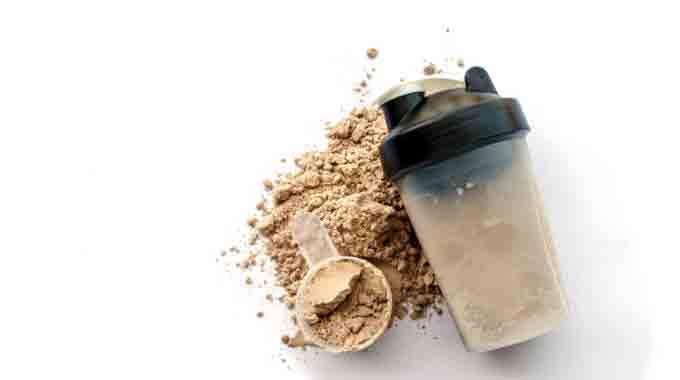ProHydrolase is a leading, proprietary blend of proteolytic enzymes designed to build muscle mass and accelerate muscle recovery when used as an ingredient in protein supplements.

It enhances the digestibility of protein to increase absorption, reduce stomach discomfort and maximize the availability of amino acids. It also increases blood amino acid concentration and decreases C-reactive protein levels – which are associated with inflammation in the body.
Lactase
Lactase is an enzyme that helps digest the sugar in milk (lactose). Some people don’t make enough lactase on their own and may take a supplement to help them digest dairy.
The small intestine produces an enzyme called lactase to break down the sugar in milk into smaller molecules that can be absorbed by your body. This helps to prevent painful, bloating, gas and diarrhea that is often associated with eating dairy products.
A person with primary lactose intolerance doesn’t produce enough of the enzyme lactase on their own. The condition usually clears up with better health and nutrition.
Secondary lactase intolerance can be caused by other factors, such as a long course of antibiotics, radiation or chemotherapy. This condition also typically clears up with improved health and nutrition, though it can take time.
Prohydrolase helps to break down a type of sugar called disaccharides, like lactose, into glucose and galactose. This makes it easier for your body to absorb the sugars.
Protease
Proteases are a class of enzymes that catalyze hydrolytic reactions that degrade protein molecules into peptides. They also act as regulators of many enzymatic cascades and are important in cell signaling.
The protease family comprises a broad spectrum of enzymes, ranging from small serine and cysteine proteases to sophisticated metalloproteinases. These are distinguished by substrate specificity, nature of the active site and catalytic mechanism followed.

In the context of dietary proteins, most proteases are produced by microorganisms of the genus Bacillus and Clostridium; however, some are also obtained from animals. The most important animal proteases include pancreatic trypsin, chymotrypsin, pepsin, and rennin.
Proteases function through two distinct, polarized, water-based hydrolytic mechanisms. The first is 1-step, where the enzyme polarizes water to attack the substrate (protein) using an acid to cleave the peptide bond. The second is 2-step, where a residue within the enzyme acts as a nucleophile to attack the substrate, followed by activation of water for complete catalysis.
Bromelain
Bromelain is a type of protease found in the stem and flesh of the pineapple plant. It can be extracted from this fruit and used as a supplement to promote digestive health, reduce inflammation, or heal wounds.
It’s also used to help people with allergies or asthma by reducing immune system cells that cause symptoms like itchy eyes, swollen lymph nodes and trouble breathing. It’s also a natural pain reliever, and is often taken after surgery to reduce swelling.
The enzyme’s anti-inflammatory properties are believed to be a key factor in its ability to relieve pain and swelling after surgery, physical injuries, or other trauma. It also works to improve the speed of healing. In addition, it’s been linked to a reduction in cardiovascular disease by inhibiting platelet aggregation.
Pepsin
Pepsin is an enzyme produced in the stomach that breaks down proteins during digestion. It is made from a protein called pepsinogen, which is released into the stomach by glands in the mucous-membrane lining of the stomach.
Stomach acid changes this inactive protein into pepsin, which is one of the most important digestive enzymes. It is responsible for digesting meat, eggs, seeds, and dairy products.
Conclusion:
Pepsin is also the first of the proteases to break down haemoglobin. This allows the hemoglobin to be dissolved in water. The protein is then absorbed through the intestine and converted to amino acids. The amino acids are then used to build new protein.
